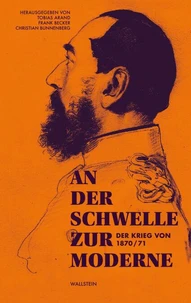This volume presents a representative cross-section of historical-didactic research projects of junior scholars of the discipline. The contributions are the result of a young scientists' meeting at the >Conference for History Didactics< which took place at the Ludwigsburg University of Education in 2012. The contributions present not so much finished results but rather show current methods, raise pressing questions and offer an interesting insight into the future of the discipline.
This volume presents a representative cross-section of historical-didactic research projects of junior scholars of the discipline. The contributions are the result of a young scientists' meeting at the >Conference for History Didactics< which took place at the Ludwigsburg University of Education in 2012. The contributions present not so much finished results but rather show current methods, raise pressing questions and offer an interesting insight into the future of the discipline.

 , qui est-ce ?
, qui est-ce ?